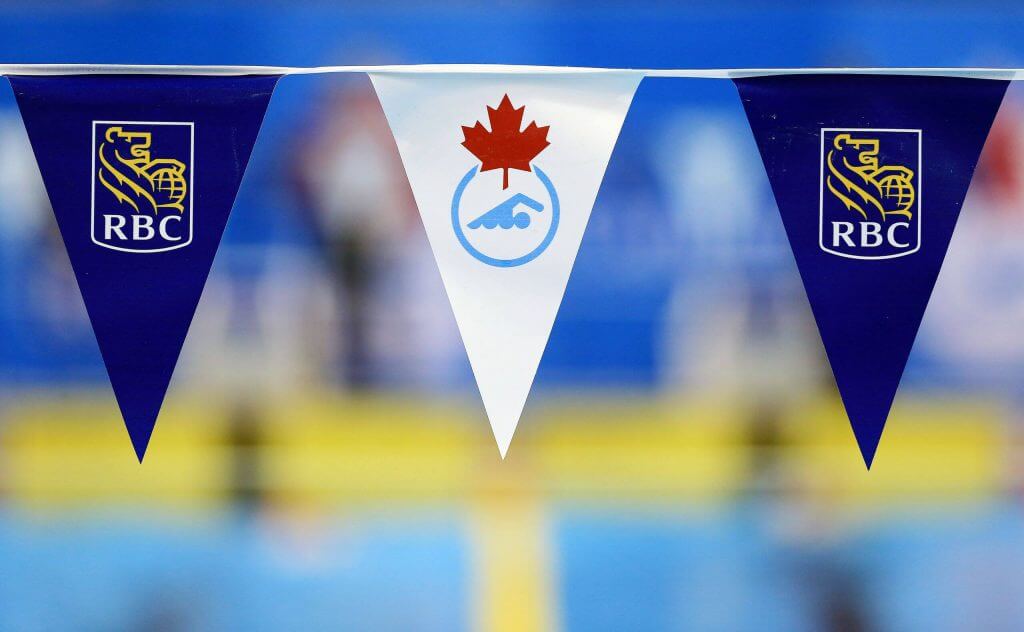Swimming Canada Juniors Aim For Strong Mel Zajac Jr International

While several members of Swimming Canada’s senior national team will be honing their skills at one of the country’s oldest meets, some junior swimmers will be using this weekend’s Mel Zajac Jr. International to show they are the wave of the future.
A group of 26 swimmers are participating in two camps in Vancouver. Both will incorporate the 56th annual Zajac meet as part of their training regime.
“The meet has great history and tradition,” said Ken McKinnon, Swimming Canada’s national development coach. “We know it’s going to be a meet of a certain level.”
This year’s Zajac meet will be held Friday through Sunday at the University of British Columbia Aquatic Centre. About 815 athletes from 81 clubs across Canada and the United States are attending.
The Zajac meet was originally founded in 1963 as Canada Cup by swim coach Howard Firby. His vision was to bring elite swimmers to Vancouver to race local athletes. Since 1998, Mel Zajac Sr. has graciously sponsored the meet in memory of his sons Mel and Marty.
Mel Jr. was a member of the Canadian national team and competed at the 1976 Olympics in Montreal. He died in a 1986 kayaking accident. Just eight months later his brother Marty was killed in an avalanche.
Over the years the Zajac meet has attracted some of the top swimmers from Canada and the U.S., plus Australia and Europe.
Senior swimmers like Markus Thormeyer (High Performance Centre – Vancouver), Emma O’Croinin (Edmonton Keyano Swim Club), Mackenzie Padington (Campbell River Killer Whales) and Cole Pratt (Cascade Swim Club) will use the meet as part of their preparation for this summer’s FINA World Championships in Gwangju, South Korea.
More meet coverage here.
The junior and youth-aged swimmers will be participating in two camps revolving around the meet. A stroke camp has attracted 10 athletes while 16 will be attending the youth free relay camp.
The stroke camp will have training sessions and each swimmer will also have three of their races filmed and analyzed. McKinnon said some of the swimmers come from smaller clubs that don’t always have an opportunity to travel to larger meets.
“It offers them an opportunity where they can get out and get into a competition a little bit above their level, so they get challenges while we are in training,” he said. “It’s going to take best times to make a final.”
The camp is also a reward for individuals who swam well at the recent Canadian Swimming Trials in Toronto but failed to qualify for this summer’s FINA World Junior Swimming Championships in Budapest, Hungary.
“What I saw at trials was a whole bunch of kids that did really well for their personal improvement . . . and just missed the junior team standards,” said McKinnon.
“What I wanted to do was give them a pat on the back, recognition, a small reward, and bring them into a camp situation to keep their motivation up. Give them some hope and talk to them about what they have just done, that they are the next group through. The exposure for those swimmers is going to benefit their devotement.”
The relay camp is primarily for 100-metre and 200-metre freestyle swimmers from clubs across the country. It’s part of an initiative started back in 2013 to bring some of the country’s most talented young swimmers to together to build depth in the relay races.
“If we could get some of the good up-and-coming freestyle swimmers to start talking to each other about relays,” said McKinnon. “It’s a good motivation to go forward to develop them, show them they have potential, show them they have an opportunity, that they could be really good and we are willing to invest in them.”
McKinnon pointed to the women’s 4×100-m freestyle relay team that won a bronze medal at the Rio 2016 Olympics. Both Taylor Ruck and Penny Oleksiak were members of that team who had participated in relay camps leading up to the Games.
“The first women’s relay camp we had, Penny and Taylor were quite young,” he said. “They had never been near the senior camp. They were doing the test sets with all the other kids.”
A deeper talent pool enhances Canada’s chances for relay medals on the international stage.
“We are going to be faster if we have seven or eight swimmers competing for the four spots,” said McKinnon.
At last year’s Mel Zajac meet, swimmers from the relay camp reached the podium in the men’s and women’s 4×100-m freestyle relay.
“The exposure is invaluable for sure,” said McKinnon. “The kids really step up.”
— The above press release was posted by Swimming World in conjunction with Swimming Canada. For press releases and advertising inquiries please contact Advertising@SwimmingWorld.com.



